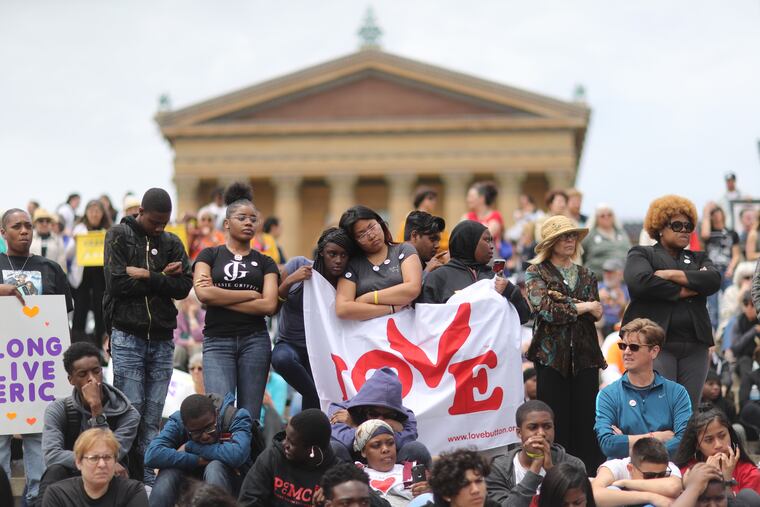Want to keep our kids safe from gun violence? Keep them after school | Opinion
Half — 50 percent — of the youth in our state would participate in after school programming if given the chance.

Back in June, I was lucky enough to attend the Fill the Steps against gun violence rally on the steps of the Philadelphia Museum of Art.
The event was led by Philadelphia school students, anti-gun violence activists, and the family members and friends of murder victims.
There, a young woman attending high school in Philadelphia spoke about how gun violence affected her life and what could be done to stop youth gun violence. One thing she mentioned was the need for after-school programs.
The Centers for Disease Control and Prevention maintains that the third leading cause of death among youth ages 10 and 24 is homicide.
According to information from Children's Hospital of Philadelphia, Pennsylvania had more than 1,200 firearms-related injuries in 2014, almost half of which were suffered by individuals under 25 years old.
Information from 2010 to 2014 indicates that more than 96 percent of all suicides and homicides in Pennsylvania are firearms-related.
Nationally, an analysis by the Office of Juvenile Justice and Delinquency Prevention shows that the hours between 3 and 7 p.m. are the most violent for juveniles.
After-school programs and summer programs for youth, also called out-of-school-time (OST) programs, can provide a safe environment where children can engage in academic endeavors, build social skills, and explore career opportunities.
The Afterschool Alliance study, "America After 3 p.m.," shows that 85 percent of parents in Pennsylvania support public funding for after school, and that more than 70 percent of parents not only find peace of mind with after-school programming for their children — these programs help parents keep their jobs.
Parents are not alone in supporting this; youths want more out-of-school time programs as well.
Right now, 12 percent to 20 percent of students in grades K-12 can participate in a program after school in Pennsylvania, while as many as 18 percent of school-age children are completely unsupervised between 3 and 6 p.m.
Half — 50 percent — of the youths in our state would participate in after-school programming if given the chance.
Unfortunately, Pennsylvania isn't doing enough to financially support out-of-school programming.
Most programs piece together money through grants from state institutions, foundations, and donors. That leaves few spaces in programs for those that cannot afford them, and a wider variety of opportunities to those who have the ability to pay out of pocket. Some of those can cost hundreds of dollars each week per child.
Reducing violence and creating opportunities for youth are relatively easy improvements for communities. Many existing programs would jump at the chance to bring in more children and develop more programming, particularly for high school youths.
In Philadelphia, and across the state, there has been a focus on pre-K and early childhood education, which are important to the development of every child. With so many youth experiencing violence during after-school hours, programs for teenagers need the same attention and funding.
The national discussion over violence prevention heightens and subsides, like an ebb and flow, accompanying tragedy. We do not need to wait to have that conversation in Pennsylvania.
We can expand that conversation to include out-of-school opportunities and reduce violence against youth now. These opportunities are needed in every community in Pennsylvania, from Briar Creek to Reading, Lock Haven to Philadelphia.
Supporting out-of-school opportunities can not only save the lives of youth in Pennsylvania, it can make our communities better and stronger for everyone.
Aja Beech is the arts integrated literacy and family engagement coordinator for Sunrise of Philadelphia, a provider of out-of-school time opportunities for youth, and a member of Resilient Voices, a speakers bureau organized by the Office of the Victim Advocate of Pennsylvania. She originally wrote this piece for PennLive.com.